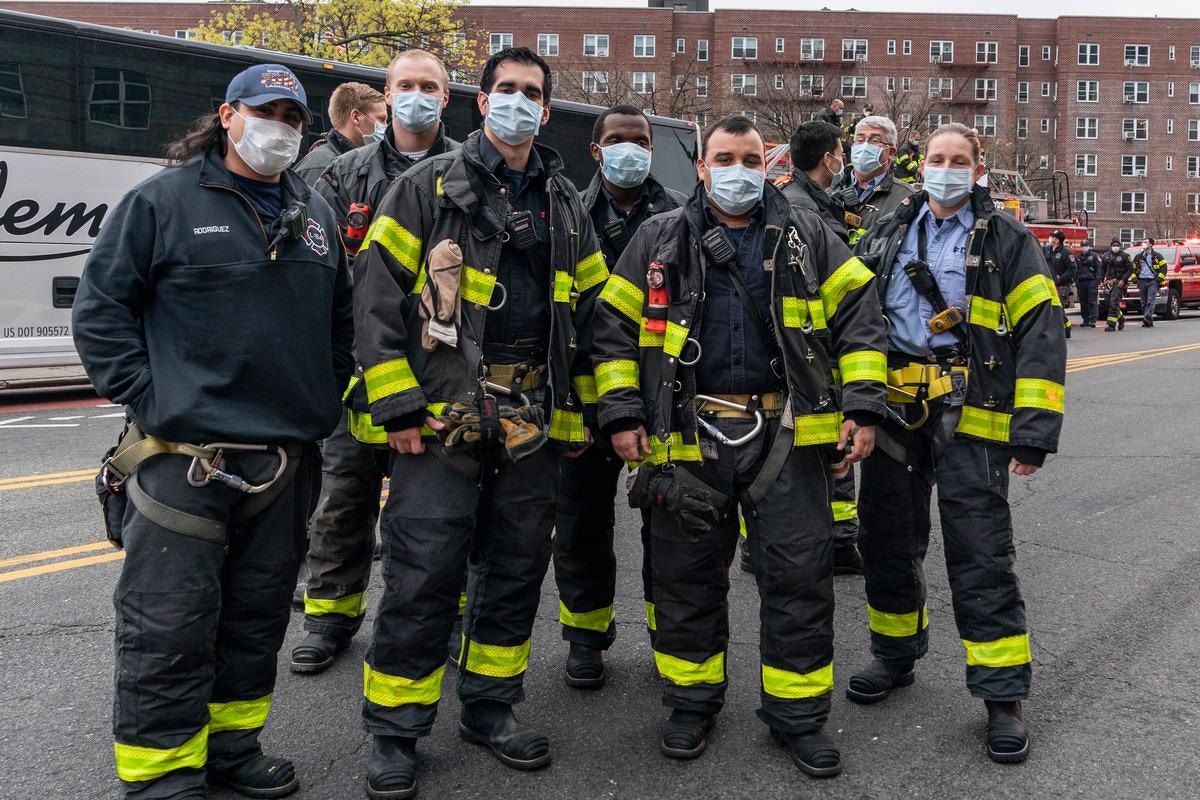Law Enforcement Officers (LEOs), firefighters, and other first responders are at an increased risk of contracting severe acute respiratory syndrome coronavirus 2 (SARS-CoV-2) infection, even more so than first-line workers like healthcare professionals. However, the former groups have a relatively low coronavirus disease 2019 (COVID-19) vaccine uptake.
Study: High Burden of COVID-19 among Unvaccinated Law Enforcement Officers and Firefighters. Image Credit: lev radin/Shutterstock
COVID-19 was the leading cause of death among LEOs in the United States this year, which amounted to 65.7% of the 420 total fatalities. Hesitancy in vaccine uptake among first responders can hamper the successful implementation of essential public services and could prove deleterious to public health and safety.
The study
A new study published in the medRxiv* preprint server gathered data from the HEROES-RECOVER prospective cohorts and reported an increased illness burden of COVID-19 among unvaccinated first responders.
In this study, a weekly active surveillance for COVID-19-like illness (CLI) was conducted among first responders from January to September 2021. Samples included weekly collected respiratory specimens, irrespective of symptoms, and at the onset of CLI—which were by Reverse Transcription Polymerase Chain Reaction (RT-PCR) assay for SARS-CoV-2.
Additionally, data on sociodemographic details, attitudes toward COVID-19 vaccines, information on the duration of illness, and missed work associated with COVID-19 were collected through electronic surveys.
The total number of responders was 1,415, of which 17% were LEOs, 68% were firefighters, and 15% had other first responder occupations. The mean age of the participants was 41.3±9.7 years; among these, most were males – 95% Whites and 71% non-Hispanics.
Findings
It was noted that unvaccinated (41%) first responders were less likely to believe that COVID-19 vaccines are very or extremely effective and safe compared to the fully vaccinated (59%) first responders. Only one-third of the first responders who completed an attitude survey admitted to trusting the government’s claims on the COVID-19 vaccine safety and efficacy. This percentage was found to be even lower among the unvaccinated first responders.
Overall, 184 RT-PCR-confirmed COVID-19 cases were identified among first responders before and after COVID-19 vaccines became available. During the study period, the incidence of COVID-19 among unvaccinated LEOs was 11.9 per 1,000 person-weeks, compared to only 0.6 among vaccinated LEOs.
Additionally, the incidence of COVID-19 was higher among unvaccinated firefighters compared to those vaccinated. The mean±SD duration of sickness after laboratory confirmation of the infection was 14.7±21.7 days among the unvaccinated first responders – who hence, missed a mean of 38.0±46.0 hours of work. Meanwhile, the duration of COVID-19 illness and missed work were lower among fully vaccinated first responders.
During the study period, the unvaccinated LEOs and firefighters were 20- and 5-times more likely, respectively, to become sick due to SARS-CoV-2 infection than their colleagues who were fully vaccinated against COVID-19. It was deduced that first responders were sick with COVID-19 for over two weeks on average and missed approximately 40 hours of work.
Despite this study being one of the largest prospective studies of its kind, the relatively small number of COVID-19 cases among fully vaccinated first responders limited the precision of estimates and precluded models of incidence that could adjust for potential confounders.
The results of this study emphasized that state and local governments with large numbers of unvaccinated first responders may face major disruptions in their workforce due to COVID-19.
Given that COVID-19 vaccines have proven highly effective in controlling SARS-CoV-2 and its variants, state and local governments should consider proposing vaccine mandates for first responders with a particular focus on LEOs. In addition, regular COVID-19 testing or alternative work assignments for unvaccinated personnel should be planned.
Furthermore, there exists a need for developing alternate strategies relying on trusted non-governmental information sources for first responders to increase vaccination rates in this cohort.
*Important notice
medRxiv publishes preliminary scientific reports that are not peer-reviewed and, therefore, should not be regarded as conclusive, guide clinical practice/health-related behavior, or treated as established information.
